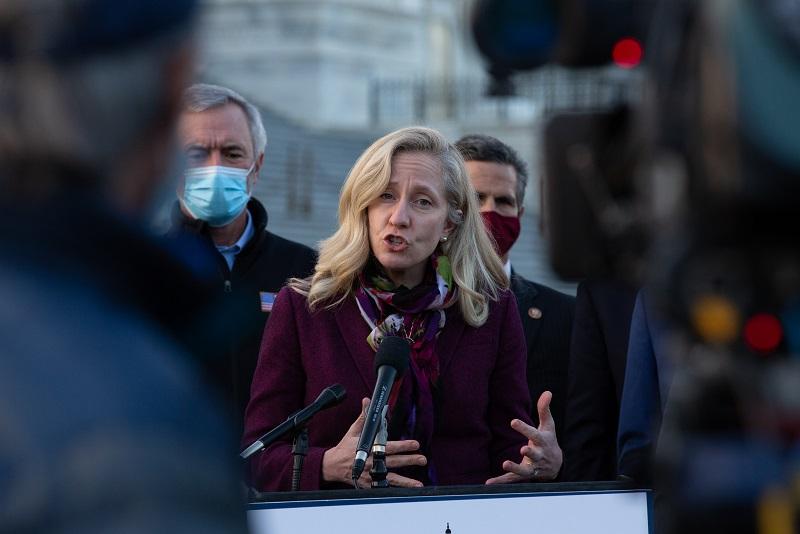A House Democrat is up in arms against party leadership in the lower chamber after Majority Leader Steny Hoyer (D-Md.) blocked legislation that would ban stock trading by members of Congress.
Rep. Abigail Spanberger (D-Va.), incensed by the decision, said in a Sept. 30 statement that it was “a failure of House leadership” and called for a new generation of Democrats to take control of the party.





